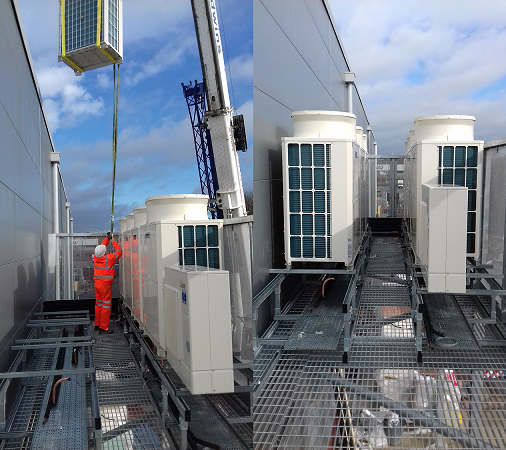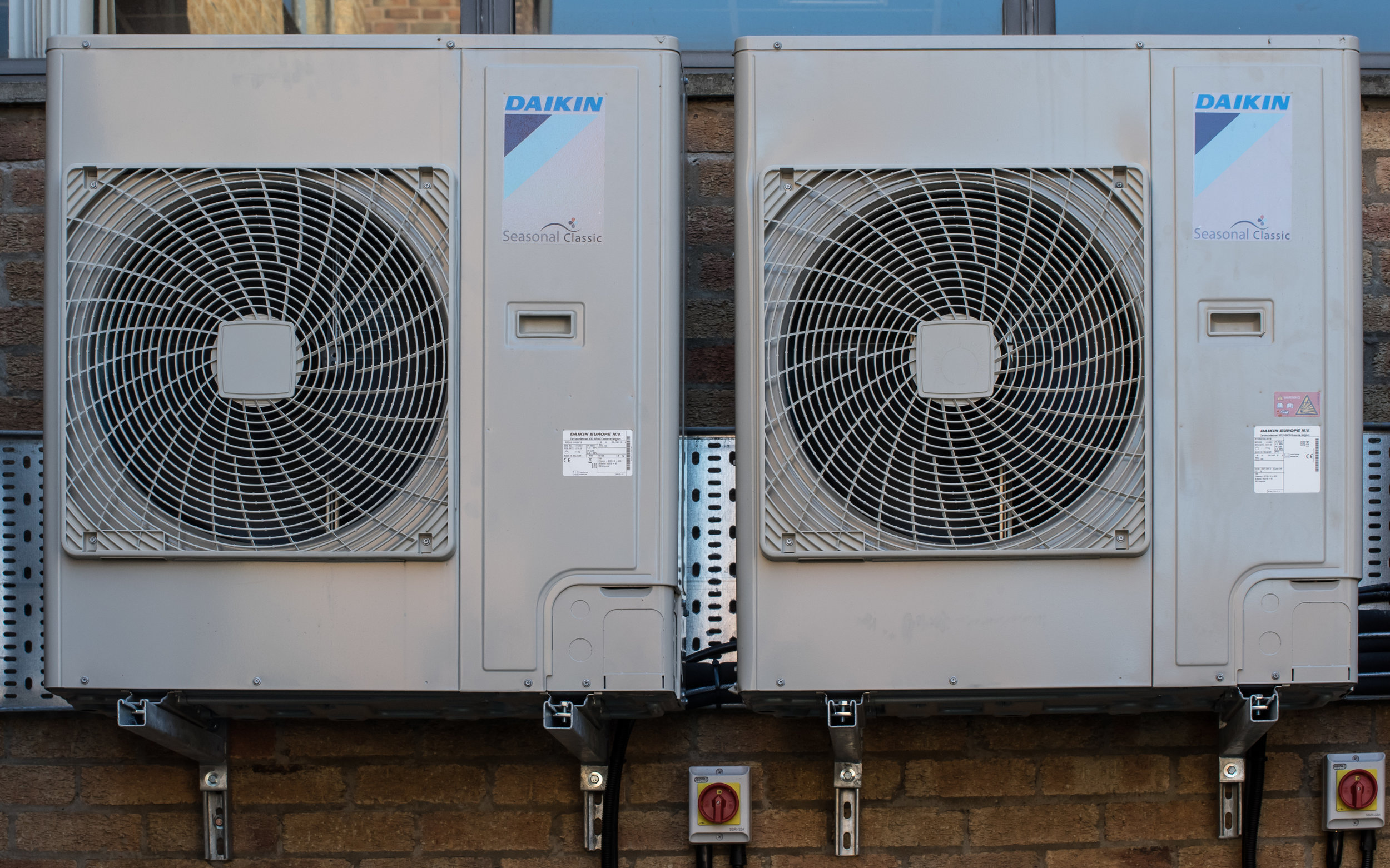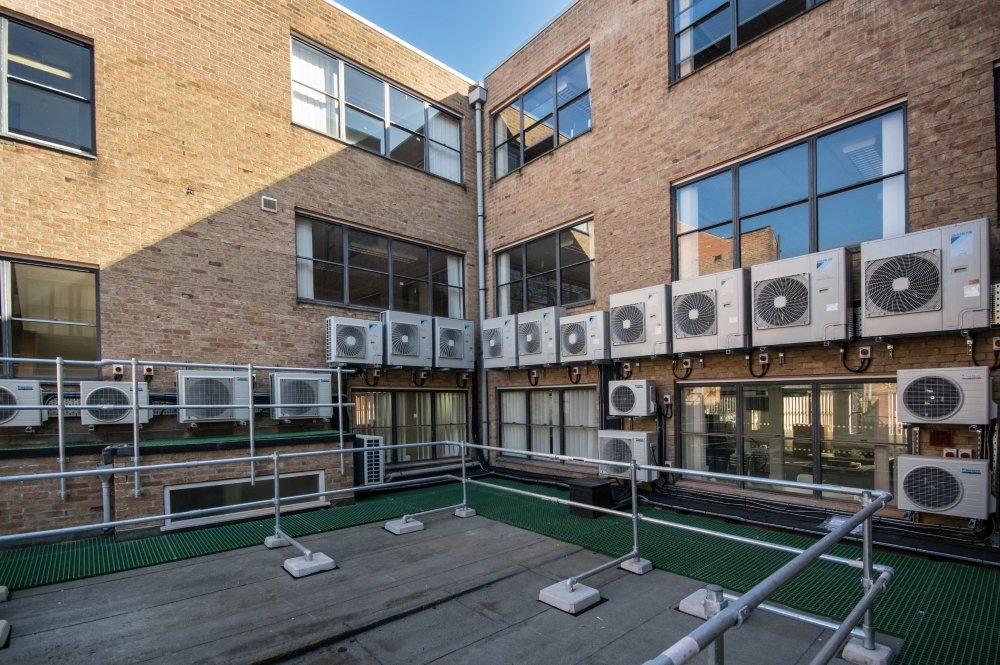Heat Pumps and Heat Recovery, are they for your property?
/If your office is not connected to the main gas grid, one of the options you may have considered is Heat Recovery or Heat Pumps as a source of heating for winter. There are two main types of heat pump currently on the market; air sourced and ground sourced. From the name, it is clear where the equipment obtains energy from but why choose them over electrical energy or any other combustion fuel? Read on to find out the pros, cons and suitability for your property.
These pumps work by extracting heat from outdoors and use them as source of energy to power your heating equipment. In the summer the technology reverses, extracting indoor heat and expels it out to provide cooling for the required area.
Suitability
Heat pumps are not suitable for every property type, because their optimum heating temperature is lower than traditional combustion or electric boilers, they are most suitable for well insulated buildings.
Outside Space
Ground sourced heat pumps simply obtains heat from the ground, these systems take more designing as well as installation time, as a network of pipes will be buried underground. Soil types will need to be taken into consideration as well. However, temperature for heat extraction would be ideal as it stays warmer in the winter.
Air sourced systems require sufficient air flow around the outdoor unit and a sunny location is ideal. Normally this is on top of the roof at a commercial property.
Inside Space
Air or ground to water heat pump systems call for the replacement of a water cylinders. Heated water is stored at a lower temperature, therefore more needs to be stored if this is your only source of hot water supply.
Insulation
If you want to rely on heating from heat pump alone, your property will need to be suitably insulated for maximum efficiency. Running temperature of heat pumps’ are lower than a standard boiler system, so the key is to keep the heat in. Check that you have both cavity wall and roof insulation. Most newer commercial buildings has more than suitable insulation. If not, check that your roof has at least 250mm of insulation and (where appropriate) cavity wall insulation.
Suitable Heating Equipment
Heat pumps’ low temperature heating means they are more suitable for air handling units, underfloor heating systems or larger radiators, which give out heat at lower temperatures, over longer periods of time and over a larger space. Most older buildings with lower energy efficiency would not be able to benefit from this low-level heating. See why underfloor heating could be your heating solution at home here.
Is it an Improvement?
If you are off the main gas network and currently using oil, LPG or electric powered boiler for heating, then heat pumps could be an improvement. The heat pump system should pay for itself in the savings from fuel bills, however electricity is still required but at a much less kilo watt per hour of heating, typically providing 4 units of energy from 1 unit of electricity.
Planning Permission
For ground source units the total area of excavation should not exceed 0.5 hectares. If you are in a listed building or a conservation area you should contact your council to check on local requirements.
Air or ground source heat pump systems will normally be considered permitted development in England, given certain restrictions and guidelines are met.
If you are considering heat pumps for your commercial or residential property and require design consultation, JCW can help. Call us today, or leave a message via our contact form.












